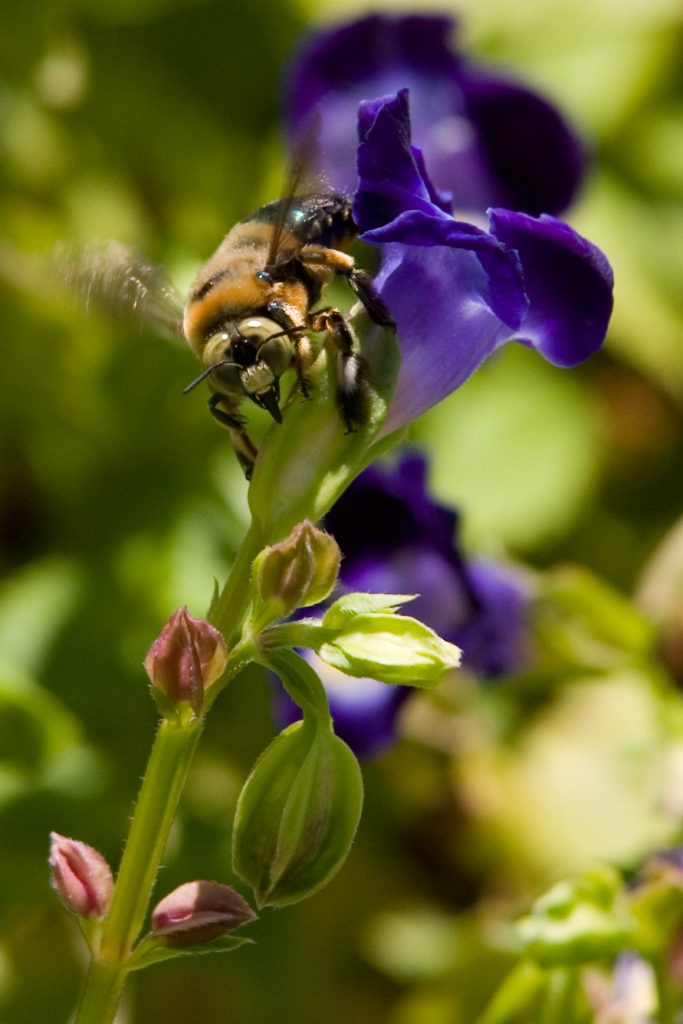Summer is the time of year when we receive the most calls about honey bees ( Apis sp.).The calls are not generally to praise the busy bee for its hard work, but to report them as a nuisance and request removal.
Apis mellifera
The acclaimed honey bee is an exotic species purposely introduced from Europe for the purposes of honey production in the 1600s. Several subspecies have unintentionally been introduced . This was the case with the Africanized honey bee. Honey bees are important pollinators and are a huge factor in the production of the food we eat. They do, however, compete with native bees , also important pollinators, for nectar and pollen.
Swarming and Aggression
Many of the calls we receive are usually in reference to a swarm. While it may be a scary site to see hundreds to thousands of bees aggregating, it is usually a temporary phenomenon. Sometimes bees will swarm for a few days as they search for a new location for the colony, then leave. If there is no hive being built this may be the case. It’s important to remember that bees will only sting to defend the colony. They may also be triggered by what they perceive as a threat. Rapid movements (swatting), dark colors, also dark hair, resembling mammals (skunk, bears, racoons, mice) that pray on bee colonies, can trigger bee aggression.Note that the average healthy adult, not allergic to bee sting, can withstand multiple stings.

Managing Bees
The best way to avoid a bee sting is to stay away. You can also avoid issues with bees by bee proofing your property. While some counties may have bee keepers who chose to provide free bee removal there is currently no Miami-Dade County service that provides free bee removal. Relocation of a hive is possible, therefore extermination isn’t always the only choice. It is not against the law to have a beehive on your property, however honeybees are also not protected from extermination. This means you can’t force your neighbor to exterminate or remove bees, and your neighbor can’t force you to do the same. Ultimately, it is the personal responsibility of the property owner to handle issues with bees.
Lastly, Florida Department of Agriculture(FDACS) is the entity that regulates the apiary industry and certifies bee keepers. If you need a professional to help you with bees on your property, FDACS has a list of certified bee keepers in your area. You can also call 1800—FLA-HELP.
Choosing a bee keeper: https://edis.ifas.ufl.edu/in771
 0
0
